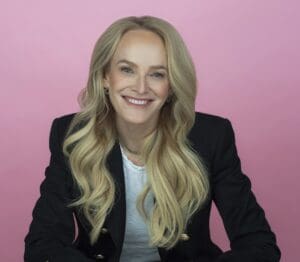
In December 2022, Thomas Bravo acquired the public company Coupa and took it private. In November of the following year, Leagh Turner became the new chief executive officer of Coupa. Coupa is a supplier of spend management solutions.
New CEOs are brought in to drive change. Coupa grew quickly for years, but Thomas Bravo sought more profitable growth. The goal is for the company to go from $1 billion in annual recurring revenue today to an ARR of $2 billion in the next three years, but to do so in a more profitable manner. “Scale drives profitability,” Turner told a group of industry analysts on April 22nd, the day before the Coupa Inspire user conference began.
She knew the company was innovative; after all, Coupa created a new software enterprise category: business spend management. Coupa’s BSM platform is based on a public cloud that connects 3500 buyers to ~10 million suppliers. This technology allows businesses to unify their procurement, expense management, invoicing, payments, sourcing, contract management, and spend analysis processes and reporting.
But it took several months for Turner to realize just how much foresight the company had shown. The public cloud gives Coupa visibility to $6 trillion in transactional data that passes through their platform. “15 years ago, Coupa got customers to agree they could leverage their data for the benefit of the community,” Ms. Turner said. “Amazing! The idea of community was there from the beginning.”
AI has matured, and that data can be mined even more effectively to provide community-powered KPIs for best-in-class performance across procurement, invoicing, expenses, payments, and ESG. “Wow! What an opportunity!”
Kevin Iaquinto, the chief marketing officer at Coupa, said the goal is to grow that $6 trillion in visibility to what is mainly indirect spend, to $20 to $30 trillion in spending that includes both direct and indirect categories. In the same way that Amazon’s data can be mined to show trends in e-commerce superior to even the data the government has, when Coupa gets to visibility of tens of trillions in procurement spending the Coupa dataset becomes the “pulse of spend.”
Coupa also has a supply chain collaboration solution that runs on the platform. This solution provides for purchase order collaboration. At the analyst day presentations, Donna WIlczek, EVP strategy and innovation, and Fang Chang, chief product officer at Coupa, announced the company was launching forecast collaboration and AI-driven purchase order collaboration intelligence as the newest solutions in the supply chain collaboration product line. These solutions will drive the spend under management growth goals that Iaquinto shared.
Supply chain collaboration data will then be mined over time to provide commodity-level alerts. In theory, once the platform has visibility to 20-30% of forecasted spend in a particular category, looming product shortages could be forecasted, like the chip shortages that surfaced during the pandemic with devasting consequences to several industries.
On Tuesday, April 23rd, Turner gave the keynote at Inspire. She returned to the theme that Coupa is sitting on a treasure trove of data that can be mined to benefit its community of customers.
“AI is in a hype cycle,” Turner admitted. How can someone detect whether a software company really has a viable AI solution? “The best data makes for the best AI. Ask a supplier, “Is the data in the public domain, or is it proprietary? How much data do you have? Do you have permission to use it?”
“It is a bad sign if an AI solution is being trained on public web data,” Turner explained. “A solution needs to be trained on the right data, on data that has been ethically sourced.” And to provide accurate answers, the data must be trained on large language models specific to a particular domain. “What Coupa has is really unique. There is no other community like this in the world of enterprise software. We are better equipped to find and manage suppliers with our AI than any other company in the world.”
On Wednesday, April 24th, Wilczek delivered a keynote that emphasized community data to accelerate sustainability goals. Wilczek emphasized the importance of assessing third party risks in order to comply with global regulations. She provided examples such as the German Supply Chain Act and the EU Corporate Sustainability Due Diligence Directive (approved by EU parliament several hours before Wilczek’s keynote started). “You don’t have to choose between your sustainability goals and being profitable,” Wilczek exclaimed.
This message of leveraging community data to simultaneously achieve sustainability and profitability was reiterated by Jen Browne, chief procurement officer at Salesforce, during a fireside chat with Wilczek. “You don’t necessarily need to spend more but you do need to make better decisions. Choose differently,” Browne told the audience.




















